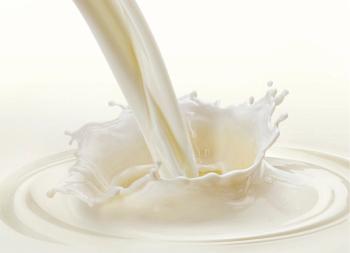
Is Egg Protein Poised for a Sports-Nutrition Comeback?
Rembrandt Foods is betting on its two egg-white protein ingredients to capture a slice of the protein, sports, and overall nutrition markets.
When most of us think eggs and sports nutrition, the prototypical image is of a bodybuilder cracking an egg-whites, yolks, or both-into his or her morning drink. Now, however, one egg supplier believes it can bring eggs to the nutrition masses in a much friendlier format. It explains why formulators should consider egg-white protein for their sports-nutrition products.
Egg-commodity supplier Rembrandt Foods (Spirit Lake, IA) is targeting the sports and general nutrition market with Rempro 8000, an egg-white protein powder comprising 80% protein that disperses in cold water in less than one minute (10 g of Rempro 8000 in 100 ml of water). The powder can add 10-15 g of protein per 100-ml serving of a beverage. Rempro 8000 has the “aroma, color, and taste typical of dried egg whites.”
Considered by many to be a “gold standard" protein source, eggs have a lot going for them. Eggs score among the highest in terms of biological values (BV), net protein utilization (NPU), and protein efficiency ratio (PER), outperforming beef, chicken, and soy in these areas-one of the reasons why bodybuilders are so keen on egg protein. Importantly, eggs are a complete source of essential branched-chain amino acids (BCAAs). And egg protein is easily digested, with a protein digestibility-corrected amino acid score (PDCAAS) score of 1.
How does egg-white protein stack up against the sports nutrition giant, whey protein, which itself is touted as a complete source of BCAAs? First of all, the ratio of BCAAs differs between whey and egg-white protein. Egg-white protein, for instance, is lower in leucine compared to whey, but higher in other BCAAs, says Mindi McKibbin, new product development manager, Rembrandt Foods. Combining egg-white protein with other protein sources, including dairy and plant protein, can help round out BCAA content, taking it higher overall, she says.
Egg-white protein’s easy digestibility also makes it a good fit for protein blends, McKibbin says. Egg-white protein is a medium-digesting protein compared to whey (fast) and casein (slow). “Having a fast-digesting protein, a medium one, and a long-term one lets you get that full, sustainable energy throughout the day, which is why people look toward protein blends,” McKibbin says.
STORY CONTINUES ON PAGE 2
For formulators wondering how the taste and smell of egg-white protein will work in their products, McKibbin says Rembrandt’s ultra-efficient egg-production process means that it’s often no more than 24 hours before the ingredient is processed. “From the time the eggs are laid until the time they’re broken, pasteurized, and dried, that process is usually less than 24 hours,” she says. “So the freshness is there-which helps with the flavor of the final egg powder. The sulfur notes, the ‘egginess,’ isn’t there anymore.”
To reinforce this point, at Natural Products Expo West, the company previewed Rempro 8090, its next-stage instant egg-white protein isolate, which will be commercially available in Q1 2017. With Rempro 8090, Rembrandt was able to boost the protein content even higher, to 90%.
“Historically, egg whites are about 80% protein, but if we de-mineralize and further purify the protein, we can reach 90% protein, the isolate level,” McKibbin says. And there are other benefits, as well. “We’ve also de-flavored the protein, so where I think formulators may not have wanted to use egg whites before because of the sulfur, ‘eggy’ notes, with this isolate product, there’s no saltiness; there’s no sulfur or egg taste to it.”
With Rempro 8000 and now 8090, Rembrandt’s goal is to carve out a place in the nutrition and protein space, not only in niche markets like muscle building and sports, but also, eventually, the overall healthy-aging market, McKibbin says. The company is also looking to invest in further research on the benefits of egg protein-for instance, for sports-performance impact. “Our next goal is to align with a university, and they will be running some clinical research for us,” she says. “I don’t think there’s been much clinical research on eggs besides eating whole eggs in your home. We all know that eggs are good protein, but how do powders like this, along with other proteins, perform for sarcopenia, beauty, energy, muscle recovery? I don’t think we necessarily have those answers yet.”
Another area of interest? The egg yolk, McKibbin says, which “has the highest amount of choline in any natural food source.”
And while eggs, just like whey, may “have their allergy issues for some people,” Rembrandt believes that egg-white protein shows a lot of promise in a market where protein demand is skyrocketing. By making egg-white protein easier to formulate with, the company is expanding the possibilities, including the types of products Rempro 8090, especially, can work in.
“Our big focus this year so far has been in powder protein blends and then nutrition bars,” McKibbin says. “But with the 8090, we found that it has less coagulation properties. The protein doesn’t gel as much, so we are trying to run some ready-to-drink beverage trials. Egg whites traditionally couldn’t be used because they would gel in the beverage, but as we’ve developed these new egg-white isolates, we’ll be looking at a version that has no gelling properties.”
Also read:
Editor-in-Chief
Nutritional Outlook magazine
jennifer.grebow@ubm.com
Newsletter
From ingredient science to consumer trends, get the intel you need to stay competitive in the nutrition space—subscribe now to Nutritional Outlook.


